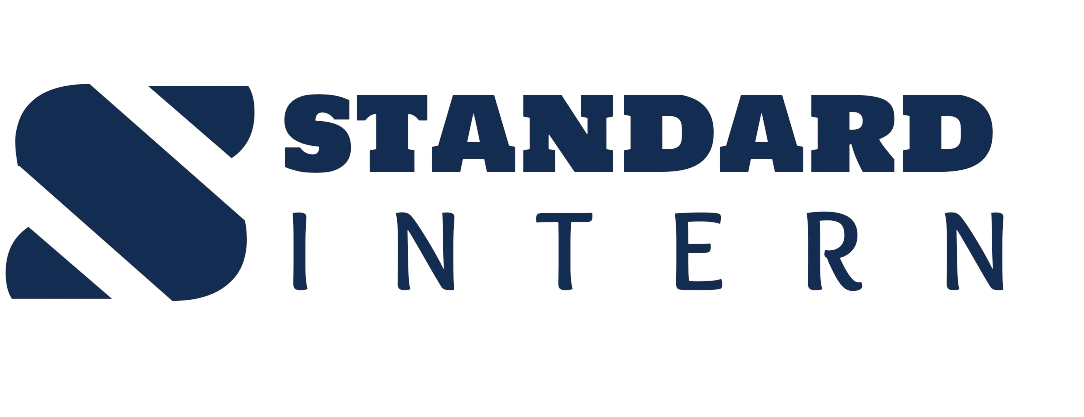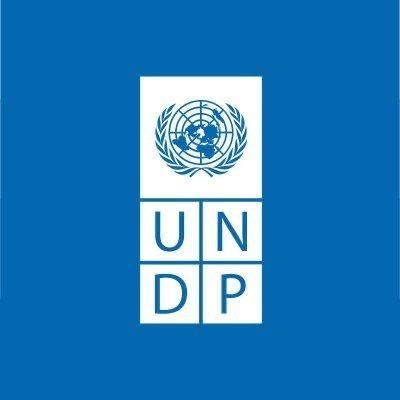INTERN - Policy Analysis, Strategic Planning, Innovation & Analytics (Information Management)
Internship
1 month ago
Employment Information
The United Nations internship programme does not provide remuneration. The United Nations Secretariat is seeking motivated interns to support the work of the UN Development Coordination Office (DCO). DCO is the secretariat to the UN Sustainable Development Group (UNSDG) and manages the Resident Coordinator (RC) system. Resident Coordinators (RCs) are the highest-ranking representatives of the United Nations development system (UNDS) at the country level and are the designated representative of – and report to – the UN Secretary-General. RCs have the responsibility to lead United Nations Country Teams (UNCTs), ensure system-wide accountability on the ground for the United Nations Sustainable Development Cooperation Framework (Cooperation Framework), and coordinate UN support to countries in their implementation of the 2030 Agenda. DCO interns may be selected for assignments within a section of the Policy and Programming Branch of DCO, including (1) Policy; (2) Inter-agency Programme Facilitation, (3) Strategic Partnerships, (4) Universal Values Team (human rights, gender equality, youth, disability inclusion) and (5) the Cross-Pillar Team (peace, humanitarian, development), or within Office of the Assistant Secretary-General (Front Office), Regional Office, Communications and Results Reporting Branch, RC system Leadership Branch, and Business Management Branch. Interns typically work full-time, five days per week (40 hours), and report to full-time professional staff in our teams, and focus on one of the two tracks set out below under Responsibilities. DCO Internships are typically for a between five and six months NB: Candidates available for five to six months full time are typically prioritized by hiring managers.. In their motivation statement, interested candidates should indicate their exact availability, i.e. the period (DDMMYY – DDMMYY) within which your start and end date must fall (e.g. “I currently expect to be available for a 5 or 6 month period between March 2024 – February 2025”). Internships can be in-person, fully remote, or in person for a limited period in combination with remote work, and can therefore take place from any timezone. Successful applicants may include management from regional offices depending on candidate location. All modalities provide for a safe, professional, inclusive and respectful environment for the colleagues we work with. The DCO internship programmes runs on a 12-month planning horizon, meaning the internship may begin no sooner than 2-months from your application and may start within 12-months of the application. Typically, two larger cohorts of interns are onboarded to work in the following periods • March - September • September - March In the motivation statement, candidate should indicate the track they are interested in: • Track 1: STRATEGIC PLANNING, DATA & ANALYTICS • Track 2: POLICY ANALYSIS & PROGRAMME FACILITATION The United Nations recruits and employs staff regardless of gender identity, sexual orientation, race, and religious, cultural and ethnic backgrounds or disabilities. People with disabilities are strongly encouraged to apply. Reasonable accommodation for applicants with disabilities may be provided with support participation in the recruitment process when requested and indicated in the application. Applicants from developing countries, female candidates, and those that identify as having a disability are encouraged to apply.
TRACK 1 AND 2: COORDINATION AND EXECUTIVE SUPPORT •Help collate guidance materials on knowledge capture and sharing •Assist collection and sharing of emerging good practice and lessons for DCO and UNSDG members •Help facilitate various online communities of practice •Support the preparation of senior-level management meetings (including UNSDG and other inter-agency meetings), conferences and retreats •Support the preparation of country-level meetings organized from the global level •Support the preparation of slide decks, background and option papers for meetings •Support the tracking and analysis of UNSDG decisions and their implementation •Help ensure consistent visual concepts and language are used •Assist in the preparation of speeches and talking points TRACK 1: STRATEGIC PLANNING, DATA & ANALYTICS • Support analytics on issues relating to the DCO/UNSDG, including cross-cutting needs, priorities, resources, risks and performance • Assist in the development corporate visualization solutions derived from multiple data sources using state-of the-art tools to enable insight and decision-making at various levels • Support the development of data models, including performance measures, to enable scorecard analysis • Build interactive dashboards and reports, using corporate analytics applications • Perform ad-hoc analysis and present results in a clear manner • Work with MS Power BI, Tableau or other similar self-service analytics toolsets • Work with relational databases such as SQL Server or other databases • Support geo-spatial analysis and geographic information systems such as ESRI ArcGIS, QGIS, Leaflet, Carto or Open Street Map • Work with analytical techniques such as sentiment analysis, predictive analysis or social media monitoring • •Support the analytics teams in maintaining key data sets, data models, indices and reports •Support the preparation of analytical slide decks for policymakers TRACK 2: POLICY ANALYSIS & PROGRAMME FACILITATION •Help monitor, identify and analyze geographic, political and thematic global trends (across all units of the Policy and Programme branch (eg. human rights, gender equality, climate and environment, inter-agency programming, partnerships) •Support the preparation of analytical reports, papers, talking points and correspondences •Assist in coordinating the formulation of strategies, programmes and policies •Support all areas of the policy process: identification and agenda building, policy development, formulation and adoptions, implementation, and evaluation •Support the knowledge management of policy and programme data/information including community facilitation, good practice capture, knowledge dissemination, and platform management •Support the preparation of analytical reports, papers, talking points and correspondences •Assist in coordinating the formulation of strategies, programmes and policies •Support all areas of the policy process: identification and agenda building, policy development, formulation and adoptions, implementation, and evaluation •Support the knowledge management of policy and programme data/information •Support market intelligence around knowledge management and organizational learning •Support the preparation of meetings, events, talks and visits
COMMUNICATION •Speaks and writes clearly and effectively •Listens to others, correctly interprets messages from others and responds appropriately •Asks questions to clarify and exhibits interest in having two-way communication •Tailors language, tone, style and format to match the audience •Demonstrates openness in sharing information and keeping people informed PLANNING AND ORGANIZING •Develops clear goals that are consistent with agreed strategies •Identifies priority activities and assignments; adjusts priorities as required •Allocates appropriate amount of time and resources for completing work •Foresees risks and allows for contingencies when planning •Monitors and adjusts plans and actions as necessary TECHNOLOGICAL AWARENESS •Actively seeks to apply emerging technology across tasks •Keeps abreast of available technology •Understands applicability and opportunities of technology for the organization
Applicants to the United Nations internship programme must at the time of application meet one of the following requirements: (a) Be enrolled in a graduate school programme (second university degree or equivalent, or higher) in information management, document management, digital archiving or a related field of study; (b) Be enrolled in the final academic year of a first university degree programme (minimum Bachelor’s level or equivalent) in information management, document management, digital archiving or a related field of study; Applicants must demonstrate their intention to study further or to work in a field relevant to this internship description. Applicants are expected to have a good working knowledge of Microsoft Word and Excel applications.
Not available.
No working experience is required to apply for the United Nations Internship Programme. Your training, education, advance course work or skills should benefit the United Nations during your internship.
English and French are the working languages of the United Nations Secretariat. For the position(s) advertised, fluency in English is required. Knowledge of another official United Nations language is an advantage.
Assessment Evaluation of qualified candidates may include an assessment exercise which may be followed by competency-based interview. Considered candidates will be contacted by the hiring manager for further assessment.
A completed online application (Cover Note, Personal History Profile as well as proof of enrolment and/or graduation) is required. Incomplete applications will not be reviewed. The Cover Note must include: • Availability (period when a start and end date must fall) • Indication of interest for track 1, or 2 • Degree Programme (What are you currently studying?) • Graduation Date (When will you graduate or when did you graduate from the programme?) • List the IT skills and programmes that you are proficient in. • Explain why you are the best candidate for this specific internship. • Explain your interest in the United Nations Internship Programme in general and this assignment in particular. In your online Personal History Profile, be sure to include all past work experiences, IT skills, and three references. Do not forget to attach your proof of enrolment or graduation. Due to the high volume of applications received, ONLY successful candidates will be contacted. United Nations Considerations According to article 101, paragraph 3, of the Charter of the United Nations, the paramount consideration in the employment of the staff is the necessity of securing the highest standards of efficiency, competence, and integrity. Candidates will not be considered for employment with the United Nations if they have committed violations of international human rights law, violations of international humanitarian law, sexual exploitation, sexual abuse, or sexual harassment, or if there are reasonable grounds to believe that they have been involved in the commission of any of these acts. The term “sexual exploitation” means any actual or attempted abuse of a position of vulnerability, differential power, or trust, for sexual purposes, including, but not limited to, profiting monetarily, socially or politically from the sexual exploitation of another. The term “sexual abuse” means the actual or threatened physical intrusion of a sexual nature, whether by force or under unequal or coercive conditions. The term “sexual harassment” means any unwelcome conduct of a sexual nature that might reasonably be expected or be perceived to cause offence or humiliation, when such conduct interferes with work, is made a condition of employment or creates an intimidating, hostile or offensive work environment, and when the gravity of the conduct warrants the termination of the perpetrator’s working relationship. Candidates who have committed crimes other than minor traffic offences may not be considered for employment. Due regard will be paid to the importance of recruiting the staff on as wide a geographical basis as possible. The United Nations places no restrictions on the eligibility of men and women to participate in any capacity and under conditions of equality in its principal and subsidiary organs. The United Nations Secretariat is a non-smoking environment. The paramount consideration in the appointment, transfer, or promotion of staff shall be the necessity of securing the highest standards of efficiency, competence, and integrity. By accepting an offer of appointment, United Nations staff members are subject to the authority of the Secretary-General and assignment by him or her to any activities or offices of the United Nations in accordance with staff regulation 1.2 (c). In this context, all internationally recruited staff members shall be required to move periodically to discharge new functions within or across duty stations under conditions established by the Secretary-General. Applicants are urged to follow carefully all instructions available in the online recruitment platform, inspira. For more detailed guidance, applicants may refer to the Manual for the Applicant, which can be accessed by clicking on “Manuals” hyper-link on the upper right side of the inspira account-holder homepage. The evaluation of applicants will be conducted on the basis of the information submitted in the application according to the evaluation criteria of the job opening and the applicable internal legislations of the United Nations including the Charter of the United Nations, resolutions of the General Assembly, the Staff Regulations and Rules, administrative issuances and guidelines. Applicants must provide complete and accurate information pertaining to their personal profile and qualifications according to the instructions provided in inspira to be considered for the current job opening. No amendment, addition, deletion, revision or modification shall be made to applications that have been submitted. Candidates under serious consideration for selection will be subject to reference checks to verify the information provided in the application. Job openings advertised on the Careers Portal will be removed at 11:59 p.m. (New York time) on the deadline date. **
According to article 101, paragraph 3, of the Charter of the United Nations, the paramount consideration in the employment of the staff is the necessity of securing the highest standards of efficiency, competence, and integrity. Candidates will not be considered for employment with the United Nations if they have committed violations of international human rights law, violations of international humanitarian law, sexual exploitation, sexual abuse, or sexual harassment, or if there are reasonable grounds to believe that they have been involved in the commission of any of these acts. The term “sexual exploitation” means any actual or attempted abuse of a position of vulnerability, differential power, or trust, for sexual purposes, including, but not limited to, profiting monetarily, socially or politically from the sexual exploitation of another. The term “sexual abuse” means the actual or threatened physical intrusion of a sexual nature, whether by force or under unequal or coercive conditions. The term “sexual harassment” means any unwelcome conduct of a sexual nature that might reasonably be expected or be perceived to cause offence or humiliation, when such conduct interferes with work, is made a condition of employment or creates an intimidating, hostile or offensive work environment, and when the gravity of the conduct warrants the termination of the perpetrator’s working relationship. Candidates who have committed crimes other than minor traffic offences may not be considered for employment. Due regard will be paid to the importance of recruiting the staff on as wide a geographical basis as possible. The United Nations places no restrictions on the eligibility of men and women to participate in any capacity and under conditions of equality in its principal and subsidiary organs. The United Nations Secretariat is a non-smoking environment. Reasonable accommodation may be provided to applicants with disabilities upon request, to support their participation in the recruitment process. By accepting a letter of appointment, staff members are subject to the authority of the Secretary-General, who may assign them to any of the activities or offices of the United Nations in accordance with staff regulation 1.2 (c). Further, staff members in the Professional and higher category up to and including the D-2 level and the Field Service category are normally required to move periodically to discharge functions in different duty stations under conditions established in ST/AI/2023/3 on Mobility, as may be amended or revised. This condition of service applies to all position specific job openings and does not apply to temporary positions. Applicants are urged to carefully follow all instructions available in the online recruitment platform, inspira, and to refer to the Applicant Guide by clicking on “Manuals” in the “Help” tile of the inspira account-holder homepage. The evaluation of applicants will be conducted on the basis of the information submitted in the application according to the evaluation criteria of the job opening and the applicable internal legislations of the United Nations including the Charter of the United Nations, resolutions of the General Assembly, the Staff Regulations and Rules, administrative issuances and guidelines. Applicants must provide complete and accurate information pertaining to their personal profile and qualifications according to the instructions provided in inspira to be considered for the current job opening. No amendment, addition, deletion, revision or modification shall be made to applications that have been submitted. Candidates under serious consideration for selection will be subject to reference checks to verify the information provided in the application. Job openings advertised on the Careers Portal will be removed at 11:59 p.m. (New York time) on the deadline date.




